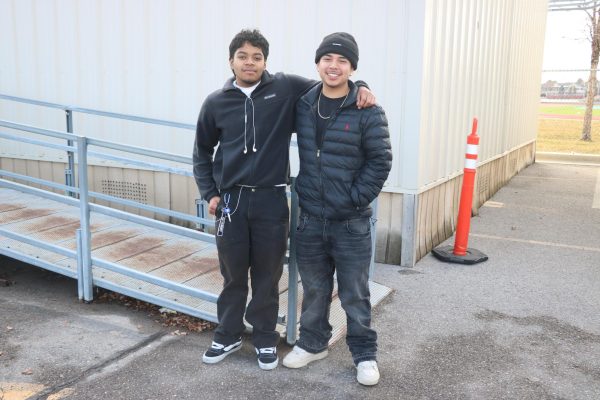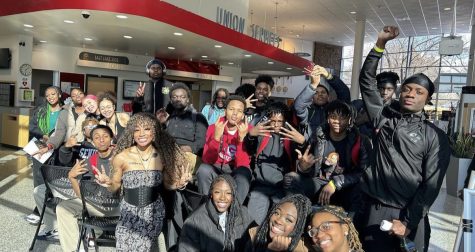Students juggle education and after-school jobs
SOME STUDENTS work while they are still in school. Most companies would prefer to have people over the age of sixteen working for them, although some companies allow people to work for them starting at the age of fourteen; this is the prime age for high school students. Working while in school can be very difficult, but if it is pulled off, it can have many great rewards. However, work can be time-consuming, so working students’ grades may suffer.
Gabriella Garcia (11) works about 20 hours a week at Little Caesars. “Working is good, it’s not that hard. Working 20 hours a week gets really tiring.” Garcia said. “It’s not usually hard to keep up with my grades; I only work on Wednesdays, Thursdays, and on the weekend.” Garcia enjoys working because she can get money to buy things that she wants.
On the other hand, Mr. Beck thinks that students should have good grades in order to have a job. “School needs to be the top priority. Students are thinking, ‘I need to pay.’ You know some have to pay their own insurance, they need to pay for their own gas, they need to pay rent,” he said. But Mr. Beck said that the top priority for students is to “get an education.”
“What if… to hold a job, you had to pass all of your classes?” Mr. Beck said. “Would that motivate them to get better grades?” It seems as though a lot of the time students are better workers than students. “Students are more loyal to their bosses, they will do anything to get the job done, we need to get students to have that kind of loyalty here,” Mr. Beck said.
Mr. Beck said that students may act like that because they don’t see that education pays later in life. Working Lancers are just thinking about today, they want the money now. “If you go to college for four years, you will have a job waiting for you; If you don’t graduate from high school, you can’t even work at McDonald’s.” he said
Some students didn’t even go to school the whole week, Shai Gunnuscio (‘11), who was studying in college to be a nurse, only went to school on Tuesdays and Thursdays because she worked thirty hours at Ebay and twenty-four hours at Five Guys. The only day that she had off from work and school was Sundays.
“It was very hard to keep up with my schoolwork; the school kept telling me that I shouldn’t work because they wanted us to do forty hours of homework and studying.” Gunnuscio said. “The hours that I was working, I could’ve spent studying.”
Although she enjoyed working, she wished that she didn’t have to. “The hardest thing about doing this was the stress. When I was at work, I’d worry about school. When I was at school, I’d worry about work. It’s a lot of responsibility.” she said. “It’s ironic: the reason why I quit going to college was because it was too expensive, even though I was working so much.”
It can be tough to work while in school. An example of this is, Jacob Pearson (12) who is currently failing three classes. He works around 45 hours a week working for his dad’s company. “I usually stay until about midnight or sometimes even longer working.” Working is pretty contingent with him. “Working has its ups and downs, it really just depends on what we are working on,” Pearson said.
Many students are being left behind in school because of work. They start to put their work first instead of their education. Money may give them what they want now, but if they are successful in school now and go to college, they will have a career instead of a job, and they will be paid more later — not only in money, but also in knowledge.









